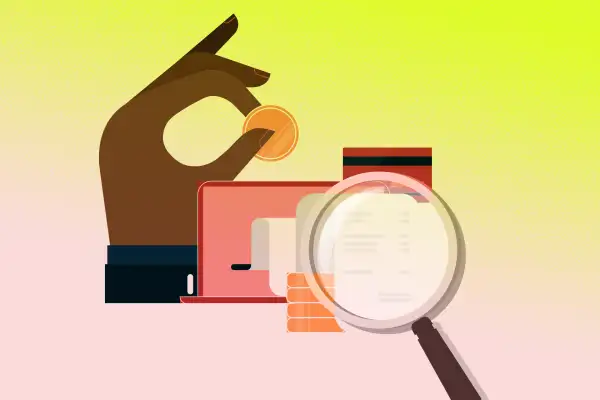Why It's so Satisfying to Constantly Check Your Account Balances, According to a Financial Psychologist

Facebook, Twitter, Instagram... Wells Fargo?
When swiping through the endless apps on your smartphone, it's easy to click over and check your bank account. Maybe you're worried about your balance. Maybe you're preparing to make a big purchase. Or maybe there's something deeper driving your behavior.
What's really going on?
Brad Klontz, a CFP and financial psychologist, says people may feel compelled to check their mobile banking apps because of their upbringing.
As youngsters, people develop what he calls a money script, or a financial belief system that follows them their whole life. He says there’s probably “a belief clanking around in your subconscious that there’s not enough money” — and one way you may be dealing with it is by checking your balance.
Basically, you're seeking out security. By looking at the numbers, you're reassuring yourself that you do have cash if you need it.
Alternatively, you may not be used to having money, so you get a dopamine hit when you see your balance grow. You feel like you're doing something right. You're preparing for the future.
No matter what the origins of the habit are, Klontz says money vigilance is generally a good behavior to have. That sort of anxiety can inspire smarter saving and spending. He compares it to a squirrel saving nuts for the winter — if the squirrel wasn't at least a little concerned about starving, it would end up starving.
“The fact that you're vigilant and concerned about it is a much better problem than not being concerned,” Klontz adds.
April Schneider, the head of consumer and small business products at Bank of America, also says monitoring your balance can improve financial health.
“Until someone is really intimate with their finances, with their spending habits, there is nothing wrong checking it daily,” she says.
It can help you feel more in control of your money. For example, looking at my apps before you make a silly purchase or decide to go out to dinner can keep you on track for your goals. It may remind you not to blow cash you could use elsewhere. (On the other hand, it could make you feel like you can afford to splurge, so you should tread carefully.)
Schneider actually suggests taking the balance-checking a step further. Instead of only seeing the number, you should click in and see what exactly has come out of your account lately. This can help improve your timing. If you see that you get charged for Netflix on the same day every month, you can start to plan for it.
The key is to avoid surprises, according to Felicia Gopaul, a CFP and CFP Board Ambassador.
That’s especially true when your funds are running low. If you're in danger of overdrafting your account, blissful ignorance could literally cost you. Overdraft fees are typically about $35, but they add up fast. Banks collected $11 billion worth in 2019.
Even so, looking more than once per day is probably not necessary. Unless you're expecting a paycheck or inheritance from a rich relative to drop, things won’t change that much from one hour to the next.
Bottom line? Checking your balance is a good habit to have, and it probably traces back to your upbringing.
As far as doing it too often, Gopaul says to pay attention to whether it’s disrupting your life. If you're poking around on the Bank of America app when you should be communicating on Slack for work, that’s a red flag. If you can't get through a conversation without taking a break to log onto Ally, that's a problem.
Otherwise, though, “knowing how much is going to be coming out of your account is a good thing,” she says. So is “knowing what you are about to take on and its impact on your finances.”
More from Money:
Best High-Yield Savings Accounts
The Best Checking Accounts of 2021
What's a 'Good' Savings Account Interest Rate, and Where Can You Get One?
